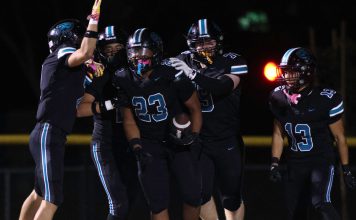Webster’s Dictionary defines confidence as
”
firm belief, trust, and reliance.
”
Our culture tells us that confidence comes with beauty, wealth
and accomplishments. God, on the other hand, says these are all
dead ends.
Webster’s Dictionary defines confidence as “firm belief, trust, and reliance.” Our culture tells us that confidence comes with beauty, wealth and accomplishments. God, on the other hand, says these are all dead ends.
In Jeremiah 9:23, the Lord says, “Wise men should not boast of their wisdom, nor strong men of their strength, nor rich men of their wealth.”
Instead, he goes on to say, “Blessed are those who trust in the Lord and have made the Lord their hope and confidence” (Jer. 17:7). In Psalm 123 we learn three keys to building our confidence in the Lord:
First, we must adopt an eternal perspective on life. In verse 1, David says, “I lift my eyes to you, O God, enthroned in heaven.” He chose to focus on God rather than his problems or his enemies. In Psalm 27:3 he said, “Even though an army sets up camp against me, my heart will not be afraid. Even though a war breaks out against me, I will still have confidence in the Lord.”
We all have a natural tendency to blow our problems out of proportion and imagine they are worse than they really are.
We then lose both perspective and confidence. By stepping back and reminding ourselves of the bigger picture we can confidently continue following God’s plan for our lives and trust him to take care of us.
Which brings us to the second key: we must trust God to meet our needs. In the second verse of Psalm 123, David says, “As servants depend on their masters, so we depend on the Lord our God.”
There’s an old saying: “Where God guides, God provides.” If you are trying to do God’s will, you can be confident that he will provide for your needs (note, I said “needs” not “greeds”).
And when a door you want to enter doesn’t open, you can know that all that means is that God has a better door for you to go through.
A final confidence builder David mentions in Psalm 123 is a commitment to make everything a matter of prayer. The latter part of verse 2 says, “…so our eyes look to the Lord our God, till he shows us his mercy.” When you read through the Psalms you realize that David learned to pray in all circumstances.
When he was afraid, he told God about it; when he was sad or frustrated or lonely or envious, he told God about it.
Even when he was angry with God, he shared it in his prayers.
David is a good role model for us in his prayer life: there is nothing we shouldn’t feel free to share with God. We can pour out our hearts to Him and tell Him exactly what is on our mind. That is infinitely better than simply complaining to everyone around us.
A man was having trouble at work and realized he would not make an upcoming deadline. Every night he went home and bitterly complained to his wife. She listened sympathetically, but could do little more. Finally, in desperation, the man told his boss about his problem. He was pleasantly surprised when he got the deadline extended and the boss even stepped in to help him restructure the project more effectively.
Many of us think that when we pray, we are like that man talking to his wife (that God lends a sympathetic ear but there’s nothing He can do about it). In reality, God is more like the boss in that story:
He can change things! God doesn’t just listen to our problems; He does something about them. That’s why David wrote, “our eyes look to the Lord our God, till he shows us his mercy.”
We can have total confidence in any situation if we will take our eyes off ourselves and focus on God and His plan for our lives.
Henry Harris is lead pastor of Rolling Hills Community Church, 330 Tres Pinos Rd. in Hollister. If you have questions or comments, please visit the church Web site at www.rollinghillsfamily.com, e-mail pa*********@****************ly.com or phone (831) 636-5353.












